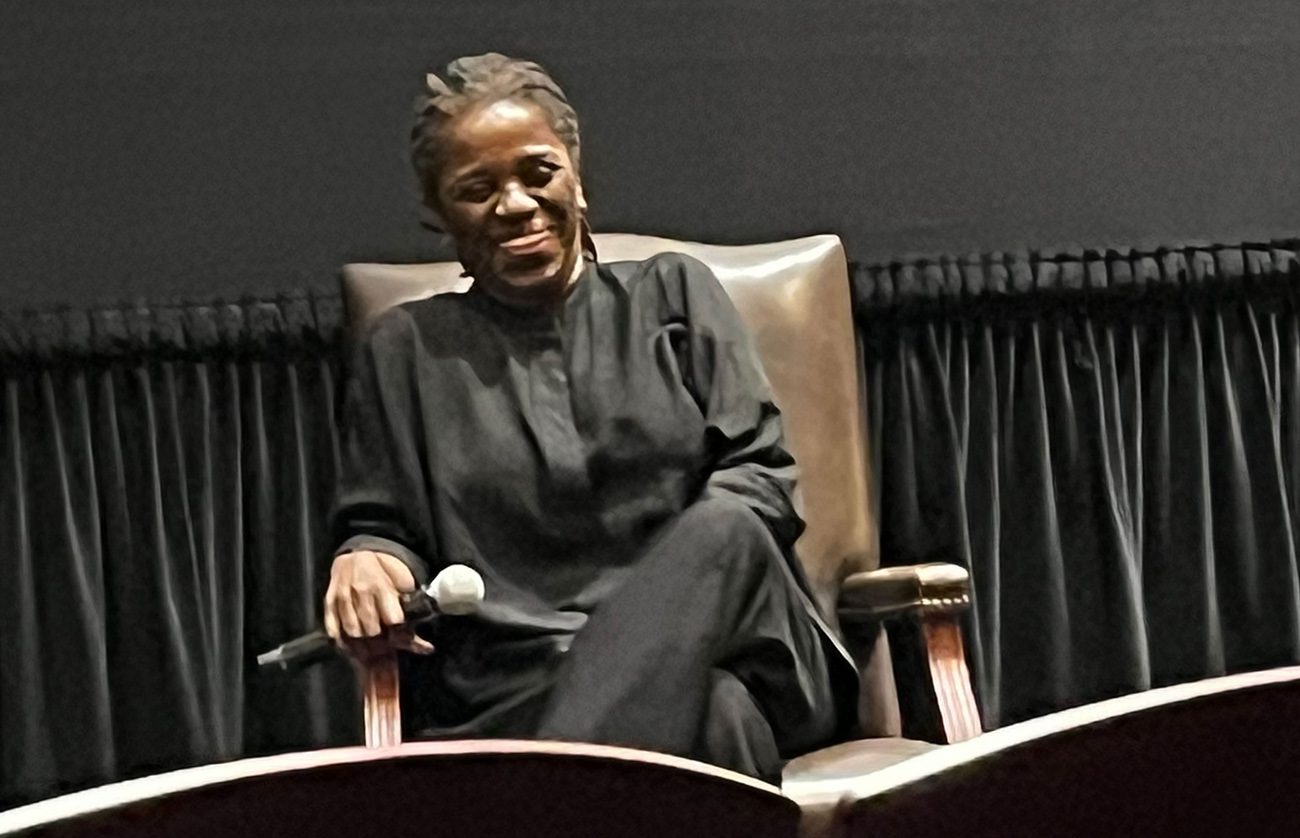
Gauss Seminars in Criticism: Denise Ferreira da Silva
March 6, 2024 · 5:00 pm—7:00 pm · Betts Auditorium
Humanities Council

The Humanities Council’s Spring 2024 Gauss Seminars in Criticism will be presented by Denise Ferreira da Silva, Samuel Rudin Professor in the Humanities Department of Spanish & Portuguese, Co-Director of Critical Racial & AntiColonial Study-CRACS Co-Lab, New York University. Her visit, under the general title, “On Sensibility, “ will comprise a public lecture on Wednesday, March 6 and a seminar on Thursday, March 7.
An academic and an artist, Dr. Denise Ferreira da Silva writes on crucial global issues, which she approaches from an anticolonial black feminist perspective. She is the author of the field-changing books Toward a Global Idea of Race and Unpayable Debt, as well as numerous articles. Her several articles have been published in leading interdisciplinary journals and she has exhibited and lectured at major art venues, such as the Pompidou Center (Paris), Whitechapel Gallery (London, MASP (Sāo Paulo), Reina Sofia (Madrid), The Belkin (Vancouver), Guggenheim (New York), MACBA (Barcelona), and MoMa (New York) as well as 10th Berlin Biennial, Document14, 2022 Singapore Biennial.
Wednesday, March 6 at 5:00 PM in Betts Auditorium
Public Lecture: “Annotations on Black Art: On Authority at the Threshold of Representation”
“If you don’t know …, if you’ve never …, if you thought … you can’t,” the artist tells critics, who insist on ignoring interventions both theoretical and aesthetical, do not even bother, for the work, my work, this work does not address you. Not because of any distinctive, unique feature of the work itself, but because the knowledge apparatus shared by critics and the public (and questioned by the artist and the intellectual tradition of which she is part) does not comprehend her work and their critique among that which is properly and immediately taken as artistic. Thinking with Simone Leigh’s, Zinzi Minott’s, and Iagor Peres’s artworks, in this talk I consider their questioning of the aesthetic, which I gather in how they confront the colonial, racial, and cisheteropatriarchal matrix. The guiding concern, I find and share with these artists, in their work is not about the whether and how of their inclusion but the whether and how their existence already occasions an implosion at/of the core (as they expose the very intrastructure) of the aesthetic field.
Thursday, March 7 at 12:00 PM — Location TBA
Seminar: “On Interiority”
If every concept, like any other modern tool for thinking, cannot but presuppose interiority as its domain of operation, how can the latter be brought under interrogation – how can interiority itself become available to its own (our mental) tools? In this seminar we consider whether the tools of raciality (that is, racial difference and cultural difference), which is the symbolic arsenal that plays in both the ethic-economic and an ethic-juridic corner of the liberal political architecture, can guide an analysis of interiority able to expose how it has operated in the accumulation of capital in the past two hundred years or so. The core formulation of interiority engaged here is the one presented in Kant’s Critique of Pure Reason and Critique of Power of Judgement, namely the formal thing or “unity of apperception,” which is the subject of determinative and reflective judgement. Both books will be read with theoretical contributions that frame raciality as a political concept, such as Gayatri C. Spivak’s, David C. Lloyd’s, Sylvia Wynter’s, Judith Butler’s, Frantz Fanon’s, C.L.R. James’s, Édouard Glissant’s, among others. Through these interventions we will read re-presentations of the Kantian Formal thing, the thing of interiority (the subject, subjectivity, or the first-person singular) — such as Husserl’s, Heidegger’s, Lacan’s, Foucault’s, Deleuze & Guattari’s — that render it a crucial aspect of the liberal political entity.
RSVP required for this lunch seminar, which is open only to members of the Princeton University community. To reserve a spot, please email both Brooke Holmes and Jeannine Matt Pitarresi. The location will be communicated to all registrants several days before the seminar.















